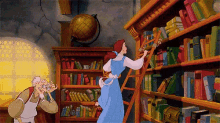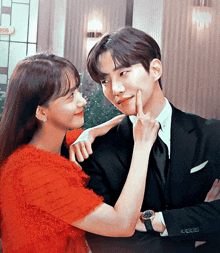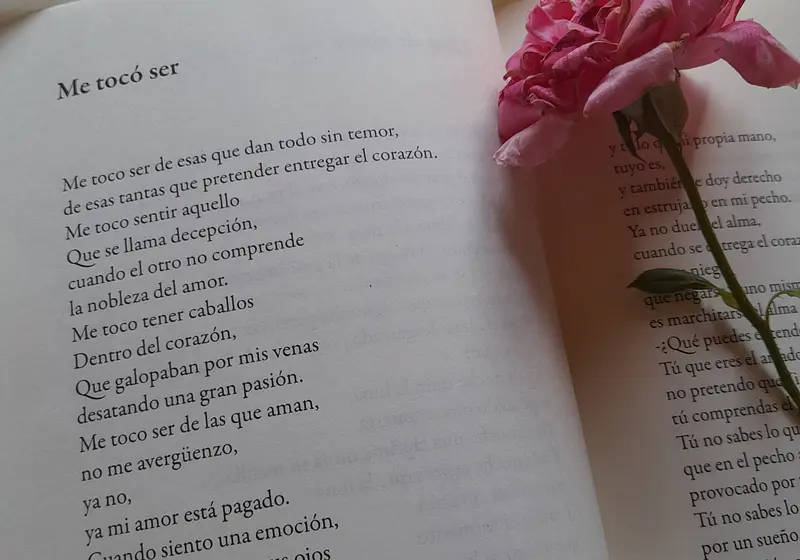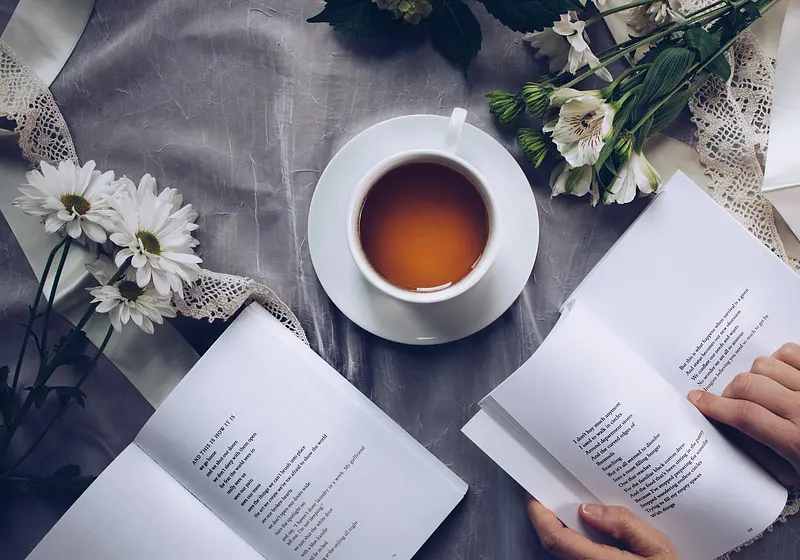I didn’t start writing poems until a couple of months ago.
Around the time I started, I found myself peering, semi-consciously out my window which showcased the Prospect Park skyline. I felt most at ease within the gaze of a never-ending evergreen, only overtaken by an empire of skyscrapers in the distance, with Lady Liberty as its crown jewel.
I never did have a preference for which version of the sun complemented the views. Both the sunrise's calming, purple tranquility and the triumphant orange sunset served as excellent contemporary backgrounds. All of those abstract symbols of freedom made me feel a bit more comfortable in my own reality.
I’m 18 now, and with the daunting reality of transitioning into young adulthood, life outside of alone time staring out the window was really stressful. Now, like many teenagers my age, I had to make difficult trans-formative changes, including but definitely not limited to: college commitments, job hunting for the first time, solidifying or walking away from friend groups, relationship statuses, playing sports or not, and juggling school work.
It’s really easy to feel overwhelmed by the struggles of balancing time for all of the above issues plus more. The transition is hard on most, if not all, and I wasn’t exempt from those feelings.
As a writer, I sought to find genres of literature that would allow myself room for expression. After all, I couldn’t always be home and sulk at the window.
The problem is, it’s really hard to concretely express how stress feels. As we transition into uncharted territories, a lot of those feelings of pressure and apprehensiveness about life seem so hard to explain. Words in the most literal sense can oftentimes feel inadequate in their harsh simplicity. Sometimes what we feel is abstract, and needs to be expressed as such if anyone else has a chance of understanding.
In this way, poetry is an amazing outlet for teenagers to delve into the healthy therapeutic potential it offers. As a genre of literature, poetry is defined as, “literary work in which special intensity is given to the expression of feelings and ideas by the use of distinctive style and rhythm”. Within the genre, there are sub-genres of poetry with many different patterns and structures.
With this mobility in expression, poems provide many benefits for those who may need it. According to CNN experts, “Poetry's ability to provide comfort and boost mood during periods of stress, trauma, and grief may have a lot to do with framing and perspective.” They go on to remark that “As a creative device, poems slow our reaction to an experience and can alter our perception of it in ways that help us find new angles, go deeper.”
For the most part, people are familiar with poems as strictly rhythmic literary art, but a lot of poems happen to be extremely irregular, with such abstract patterns, and fluid designs. A poem can be whatever satisfies the soul, and that’s what makes them so great. As Legendary Victorian poet, Thomas Hardy, would put it, “Poetry is emotion put into measure. The emotion must come by nature, but the measure can be acquired by art”.
Before a couple of months ago, I’d only ever read love poems randomly or in school during poetry units. Because of my lack of exposure to the versatility of poetry, I was an ignorant believer that poems were just sappy, cliche, gentle pieces of writing. I could never understand how someone could be so vulnerable as to publicize such deep emotions.
Those same emotions that I could identify were hard to dissect for yourself, much less to put out for the entire world to attempt to empathize with. For those who could do that, I commended (very passively). Maybe there was a bit of pride, shame, or maybe even fear that I would sound weird for reading back myself as that vulnerable person I internally criticized.
I was dead set on not even attempting to write poetry. That was, up until one night.
That night, as I was scrolling on social media, I came across a TikTok video with what looked like an old, melancholic painting of Abraham Lincoln smoking a cigarette with his hat off and head down. In cursive, Times New Roman, “This poem>>” was plastered across Lincoln’s body, indicating I swipe right for the next picture. Vaguely intrigued, I swiped left, and read a poem that went like this,
“In ten years time I'll see you
in a supermarket and you will be buying apples and
I will be buying
oranges and we will ask
each other how we've
been. You will look at my
left hand and I will look
for baby formula in your
basket. We will tell each
other it's been a while.
One will say I've missed
you and the other will
agree. Both will laugh and
say it's about time we spoke in a supermarket.
We will pay using
separate cards at separate
tills and the fruit will rot
in separate bowls. The
zest will dull and the
jealousy will stagnate and
you will buy oranges next
time. I will buy my
children blueberries.”
The more I read, the more confused, yet curious I was. The poem took a route different from poems I’ve read before. It wasn’t a boring cliche about intense love as I read before, but instead, a more complex, bittersweet interpretation of fleeting, separating love after relationships.
I was moved by the emotion that felt a lot more personal. I could almost see myself being in that position with an ex 10 years in the future. I felt his pain, while also feeling the happiness he’s been able to keep alive after losing love so many years in his past.
Although I could tell the person writing the poem was a lot older, I began asking myself why I couldn’t make something that expressed an emotion other than love, sadness, hatred, or any other compound emotion.
Sitting by my window, a couple nights later, I stared back at the abyss that was the no longer sun-lit trees. The distant Manhattan lights seemed so far away now, and Lady Liberty faded away into the fog extending across New York City. Disappointed, I lit a candle, put on a nice robe, and set up my astral projection light lamp for the night. I sat over in my little desk corner, where my computer remained open. I opened a fresh Docs, and with my first attempt at writing poetry, I wrote:
How weird it feels to be the 'unstable' one for once.
Breaking the boundaries of our composed masculine nature,
we scream.
We scream with the rage we've grown to be comforted by.
But, involuntarily, we also cry.
We cry even though logic tells me not to
. In spite of every other piece of our bodies
rejecting this illegally vulnerable action.
We cry.
Doesn't it feel good?
Maybe a little better than I expected.
We've quickly learned that it's best to lean into your tears
. Once the flood gates open,
it's best not to fight it.
In that moment, we embrace our pain, loss, anger, personified.
Claim them. They're yours and yours alone.
The clash of sounds are reminiscent of the somber sorrow every teenage boy shares.
These shouts and tears you've become accustomed to denying the existence of.
Writing might not be for everyone, and that’s totally understandable. I find that poetry, similar to music, is easier said than done and does still take a while to put together. However, for those of us teens out there interested in exploring different avenues of therapy, to alleviate the stress of academic, social, and mental overload, I would definitely suggest stepping into the world of creative literary expression that is poetry.











.jpg)

